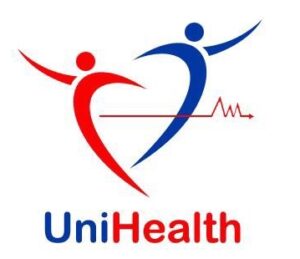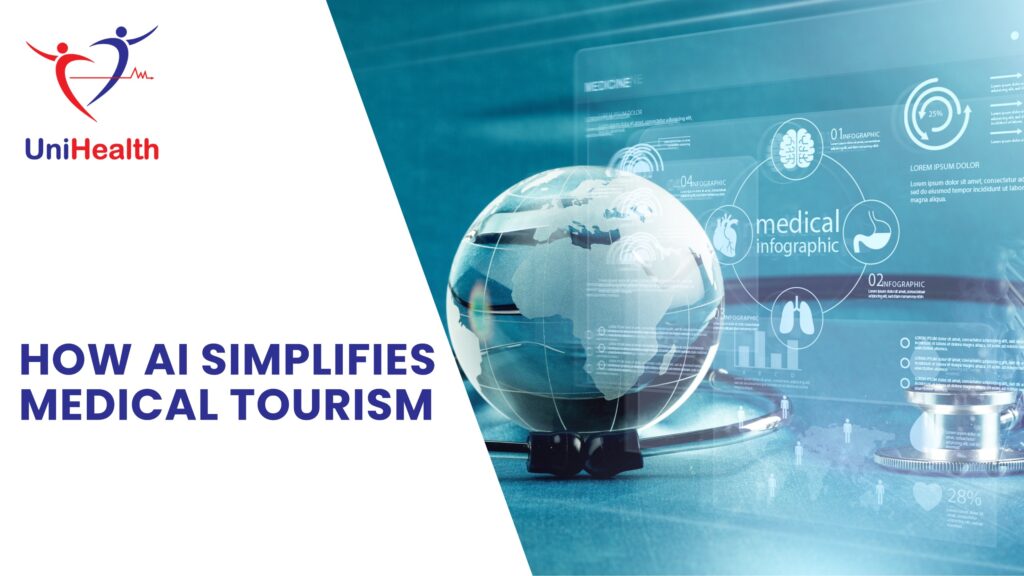In today’s rapidly advancing digital era, AI in Medical Tourism is revolutionizing how patients seek healthcare across borders. With smart tools, virtual assistants, and predictive analytics, AI in Medical Tourism has become a cornerstone of Medical Travel Technology, offering efficiency, personalization, and trust.
Medical tourism has grown significantly in recent years. Patients are traveling internationally for complex surgeries, fertility treatments, dental procedures, and wellness care. But navigating unfamiliar healthcare systems, languages, and logistics can be overwhelming. That’s where Medical Travel Technology, powered by AI, comes in.
1. Personalized Healthcare Recommendations
One of the most remarkable uses of AI in Medical Tourism is in creating customized treatment plans. AI analyzes a patient’s medical records, preferences, and financial constraints to match them with the most suitable hospitals, doctors, and treatment options worldwide.
Thanks to Medical Travel Technology, patients no longer need to manually research facilities. AI does the hard work—suggesting destinations with the highest success rates, safety standards, and cost-effectiveness. This personalization builds confidence and saves time.
2. Real-Time Chatbots and Virtual Assistance
AI-powered chatbots are changing the game for international patients. These smart tools answer queries, assist with appointment booking, guide visa documentation, and offer 24/7 multilingual support.
Hospitals using AI in Medical Tourism can now stay connected with patients even before they arrive. These virtual assistants, a key part of Medical Travel Technology, ensure seamless communication and reduce the need for human support, while increasing efficiency and satisfaction.
3. Transparent Cost Estimation and Planning
One major barrier to medical tourism is hidden or unclear costs. AI in Medical Tourism offers cost calculators that provide real-time, detailed estimates, covering everything from surgery costs to hotel stays and follow-up care.
This is where Medical Travel Technology shines. It helps patients plan their budget, compare options, and avoid surprises. AI also factors in real-time currency exchange and insurance coverage, giving a full financial overview.
4. Document Management and Translation
Handling medical records across borders can be difficult, but AI in Medical Tourism simplifies this task. AI tools can read, organize, and translate health documents, including prescriptions, lab results, and imaging reports.
With Medical Travel Technology, patient data can be securely shared between international facilities, ensuring continuity of care and eliminating manual errors. AI-powered translation tools break down language barriers and ensure that patients understand their treatment every step of the way.
5. Predictive Analytics for Better Outcomes
AI in Medical Tourism goes beyond logistics—it improves clinical outcomes too. By analyzing previous patient data and global trends, AI can predict recovery times, suggest post-op care plans, and flag possible complications.
This predictive capacity makes Medical Travel Technology not just a travel assistant, but a healthcare ally. It helps doctors and patients make informed decisions before, during, and after travel, minimizing health risks and maximizing success rates.
6. Smart Travel and Logistics Management
From flight bookings to hotel reservations, Medical Travel Technology, powered by AI, handles all aspects of patient travel. AI tools find the best deals, alert patients to travel restrictions, and arrange airport pickups and local transportation.
Using AI in Medical Tourism, patients can enjoy stress-free journeys. Everything from visa reminders to dietary preferences can be managed through one platform. This integration enhances the overall medical tourism experience.
7. Multilingual Support and Cultural Adaptation
Traveling for medical treatment means entering a new culture, which can be daunting. But AI in Medical Tourism includes language translation and cultural guidance as part of its toolkit. It helps international patients understand procedures, communicate with medical staff, and feel more at ease.
Medical Travel Technology ensures nothing is lost in translation—literally. These AI tools support over 100 languages and are often trained on medical terminology, ensuring accuracy during consultations and document reviews.
8. Remote Monitoring and Post-Procedure Follow-Up
Returning home doesn’t mean the end of care. AI in Medical Tourism continues to support patients through wearable devices, teleconsultations, and mobile health tracking.
Thanks to Medical Travel Technology, patients can stay connected with doctors abroad for follow-up consultations, rehabilitation programs, or emergency advice. AI alerts both patients and providers to abnormal readings, promoting faster interventions.
9. Fraud Prevention and Data Security
Patient data is sensitive, especially when shared across borders. AI in Medical Tourism plays a vital role in ensuring that this data remains secure. AI systems detect suspicious activity, protect payments, and enforce privacy policies.
Medical Travel Technology platforms are built with advanced encryption and compliance with international healthcare regulations (like HIPAA and GDPR), protecting both patients and providers.
10. Improved Patient Experience and Satisfaction
Ultimately, the goal of AI in Medical Tourism is to enhance the patient experience. From the initial inquiry to post-surgery care, AI makes the journey smoother, faster, and safer.
The all-in-one capability of Medical Travel Technology allows patients to enjoy streamlined services, real-time updates, and 24/7 assistance, improving overall satisfaction and building trust in cross-border healthcare.
The Future of Medical Travel is Powered by AI
The integration of AI in Medical Tourism is redefining healthcare accessibility, especially in countries like India, Thailand, Turkey, and the UAE. Governments are supporting Medical Travel Technology to boost inbound health tourism, streamline patient journeys, and reduce strain on traditional healthcare systems.
Whether you’re a patient looking for affordable care or a provider aiming to attract global patients, AI in Medical Tourism is the future. It improves safety, enhances decision-making, lowers costs, and ensures a high-quality experience.
Final Thoughts
The future of international healthcare lies in embracing AI in Medical Tourism. As patients become more informed and healthcare becomes more global, Medical Travel Technology ensures a smarter, safer, and more accessible journey.
By leveraging AI in Medical Tourism, the industry is not only improving care but also making world-class medical treatment available to everyone, everywhere at Unihealth Global. Connect Today.

